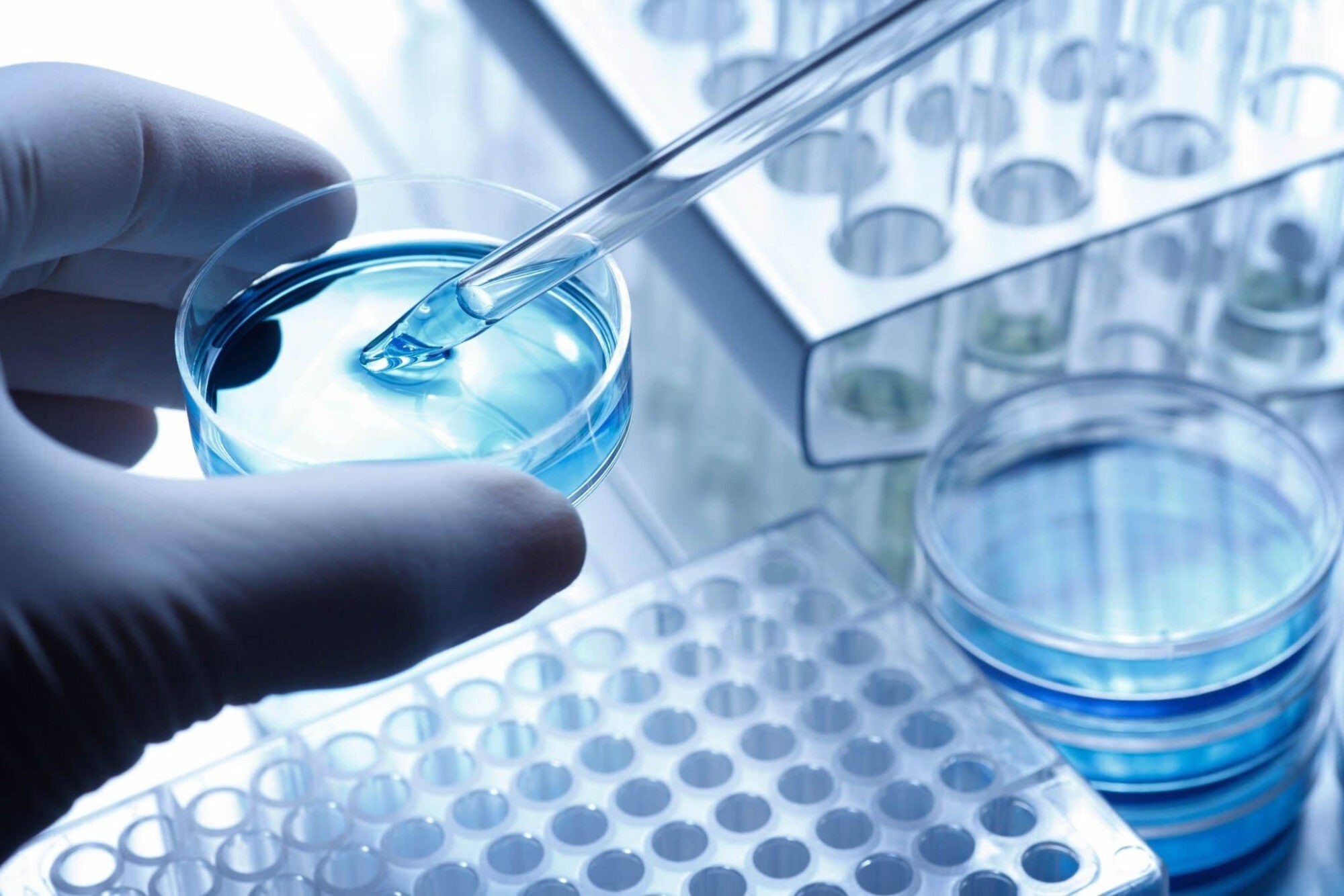Proteomics is the study of all proteins (the proteome) contained in an organism or other biological entity. By understanding the composition of and interaction between all these important macromolecules at once, scientists can gather insights far beyond those obtained from studying individual proteins.
The applications of proteomics research are vast. The list includes finding new biomarkers for disease, discovering and testing drug targets, designing better crops to address food security, and unlocking the secrets of biology itself. But current technologies for studying proteins aren’t advanced enough to truly cover the breadth and depth – the scale – of the proteome. Soon, new technologies may finally unlock proteomics at a scale large enough to truly deliver on its promise.
Watch this video for a brief intro to proteomics:
Applications of proteomics research
While an organism’s genome stays almost entirely the same throughout its life, its proteome is always changing. Cells make different proteins to respond to different situations — a healthy person’s proteome will look different than a sick person’s, for example, and different types of cells produce and use different sets of proteins. So, while it’s relatively easy to study someone’s genome from a single sample, it’s much harder to fully sample their proteome.
Furthermore, proteomics research doesn’t just mean figuring out which proteins are in a sample, often called discovery proteomics. It also means understanding how much of each protein is there, how each protein has been modified, and the ways these proteins interact. This kind of targeted proteomics work is fundamental to biological research and clinical development. For example, with proteomics methods, researchers can determine the roles protein modifications play in cellular communication, while drug developers can see if inhibiting a particular signaling pathway actually reduces the expression of genes normally induced by that pathway.
In addition, cells produce different proteins when they’re infected with a pathogen, or otherwise unwell, so researchers studying human disease often use proteins as biomarkers that can diagnose diseases or show if a treatment is working. Currently, researchers use proteomics to find protein biomarkers for cardiovascular disease, diabetes, COVID-19, renal diseases, and much more. Scientists have also found many protein biomarkers for specific cancers, making proteomics an ideal way to diagnose particular malignancies.
This is just the tip of the iceberg when it comes to the many potential applications of proteomics. Check out our white paper series on the “proteomics revolution,” to dive into more ways comprehensive proteomics technologies can change the world.
- Learn more about applications of proteomics in cancer
- Learn more about applications of proteomics in neuroscience
View our animation to learn how proteomics can spur the development of precision medicines
Types of proteomics
Targeted proteomics
Targeted proteomics involves looking at a subset of a samples’ proteome, focusing on proteins of interest. This could mean focusing on just proteins related to a particular signaling pathway in a tumor sample, for example. Alternatively a targeted proteomics study might focus on proteins known to be expressed by a virus. Overall, targeted proteomics allows researchers to learn more about specific proteins, and generate actionable insights into how to treat disease, or understand a complex process. From there, researchers may take a structural proteomics approach to better understand the 3D structure of proteins, a functional proteomics approach to understand how a particular protein interacts with other proteins in a cell, or another approach.
Untargeted proteomics
Untargeted proteomics refers to proteomics research aimed at understanding what proteins are in a particular sample, and often how many of each kind there are. Researchers might conduct a discovery proteomics analysis of a new species of bacterium to find out what proteins are being expressed, for example. They may also use such broadscale proteomics techniques to get a snapshot of the depth and breadth of proteins inside a new species of hybrid crop.
Proteomics techniques
Currently, scientists can only peer into the proteome in a limited way. Existing proteomic analysis technologies cannot fully reveal all the proteins in a sample, or their abundance, modifications, and interactions. That means the true scope of the proteome remains hidden; a biological ‘black hole’ of sorts.
Part of the reason is that the proteomic analysis tools scientists use weren’t made with the scale and complexity of the proteome in mind. They contain fundamental tradeoffs that limit the type of proteomics research we can carry out. Some of these traditional proteomics methods include:
- Mass spectrometry – This involves breaking proteins into small molecular fragments that are run through a mass spectrometer. The device determines the mass of each fragment, which scientists use to infer their identity.
- Antibodies and other affinity reagents – These bind to certain specific proteins. Using fluorescent labeling or additional reagents lets scientists visualize binding and tells them whether these specific proteins are in a sample, where these proteins are, and how abundant they are.
- Edman degradation – This is a form of protein sequencing that involves binding a chemical to the amino acid at the end of a protein and then stripping it off and identifying it. Doing this repeatedly lets scientists see what molecules the protein is made of, which gives them information about its structure and function.
Next-generation proteomic analysis
All these proteomics technologies have pros and cons, but none truly check all the boxes for an ideal proteome analysis platform. To truly interrogate the proteome in a way that’s accessible to most researchers, we need technologies that are:
- Comprehensive
- Sensitive
- Able to cover a broad dynamic range
- Reproducible
- Rapid throughput
- Designed with an integrated workflow
Mass spectrometry has difficulty seeing low abundance proteins, for example, while many antibody-based technologies are targeted to a small subset of the proteome. Most proteomic analysis technologies today can identify less than 10-30 percent of the proteins in a sample, leaving much of the proteome in the dark.
Next-generation proteomics technologies like the NautilusTM Proteome Analysis Platform seek to resolve many of these issues. Using multi-affinity probes and hyper-dense single-molecule arrays that can hold billions of proteins, the Nautilus platform is designed to be sensitive while also having a large dynamic range that can match the enormous scale of the proteome. The platform is predicted to be capable of measuring more than 95 percent of the proteome. That breadth and sensitivity will enable researchers to ask far more nuanced questions and uncover new knowledge about the proteome.
Check out the Translating Proteomics Podcast to learn why we’re poised for a proteomics revolution
Future proteomics applications
Although proteomics research is already fundamental to medicine and biology, much of its true potential has yet to be tapped. Better proteomics technologies could supercharge the process of drug discovery and development by giving researchers insights into far more proteins and revealing previously unknown nuances of drug-protein interactions. Similarly, finding better protein biomarkers for Alzheimer’s disease would both enable doctors to diagnose it earlier and enable more precise insights into how the disease progresses.
Proteomics research isn’t limited to the human body, either. Just as in humans, proteins drive plant biology, meaning better proteomics technologies could revolutionize the agricultural industry. Watching how a plant’s proteome responds when water or nutrient levels are low might show scientists how to design better means of protecting crops in harsh conditions. And studying how plant proteins function could reveal better ways to help plants adapt to a changing climate.
Ultimately, the study of proteomics is the study of life itself: How it functions, grows, and changes on a fundamental level. In-depth knowledge of proteins benefits our understanding of medicine, biology, agriculture, and even entire ecosystems. Right now we’re only scratching the surface of the proteome, but, with the right proteomics tools, we’ll be able to dive far deeper, and enable revolutionary new capabilities.
Find more applications of proteomics.
Learn more about applications of proteomics on the Translating Proteomics podcast
MORE ARTICLES


